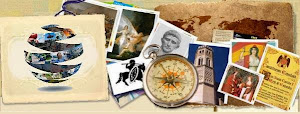What is History of psychology | Psychology Concepts.
Psychology -Psyche (mind) + logia (study) = study of the mind and mental processes, behaviors, desires, perceptions, motivation. These studies were made by philosophers, who were trying to understand the human mind through observation of behavior.
In the last 25 years of the 19th century, psychology evolved as a distinct scientific discipline with its own methods and lines of study, and no longer a branch of philosophy, as was seen until then.
The direction of new science was influenced by German psychologist Wilhelm Wundt, who had precise ideas about the shape of the new science, establishing the goals, objects of study, the methods and topics of research. However, several other psychologists have emerged and formed groups of studies, thus creating the currents of thoughts, which do not always agree with each other.
For a theory or event to be considered scientific, their reproduction is required in a controlled environment, and that their results are predictable. After several plays, an event or theory that is "predictable", becomes a scientific fact. So, not just a single isolated event, for a psychological evaluation is made.
This current of thought had illustrious followers as the English philosopher Thomas Hobbes (1588-1679), the French philosopher René Descartes (1596-1650) and the Italian physicist Giovanni Borelli (1608-1679).
Empiricism (21st century. XVII) – pursuit of knowledge by observation of nature and the assignment of all knowledge to the experience, i.e. only if gets knowledge, through the experience of studying.

In the last 25 years of the 19th century, psychology evolved as a distinct scientific discipline with its own methods and lines of study, and no longer a branch of philosophy, as was seen until then.
The direction of new science was influenced by German psychologist Wilhelm Wundt, who had precise ideas about the shape of the new science, establishing the goals, objects of study, the methods and topics of research. However, several other psychologists have emerged and formed groups of studies, thus creating the currents of thoughts, which do not always agree with each other.
For a theory or event to be considered scientific, their reproduction is required in a controlled environment, and that their results are predictable. After several plays, an event or theory that is "predictable", becomes a scientific fact. So, not just a single isolated event, for a psychological evaluation is made.
Currents of thought
Mechanism (21st century. XVII) – doctrine for which the natural processes are determined mechanically and capable of explanation by the laws of physics and chemistry, and as a metaphor, the clock, which represents the workings of the universe. By this theory, the idea of determinism, which is the belief that any action is determined by the events of the past. Arises, too, the notion of reductionism, which is the idea that, to understand an idea or fact, complex would reduce them to ideas or simplest facts, how to disassemble a watch, to understand its operation.This current of thought had illustrious followers as the English philosopher Thomas Hobbes (1588-1679), the French philosopher René Descartes (1596-1650) and the Italian physicist Giovanni Borelli (1608-1679).
Empiricism (21st century. XVII) – pursuit of knowledge by observation of nature and the assignment of all knowledge to the experience, i.e. only if gets knowledge, through the experience of studying.
Published for educational purposes
